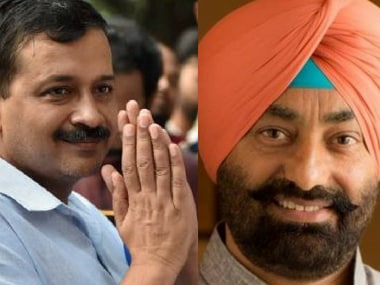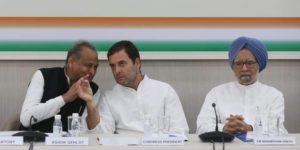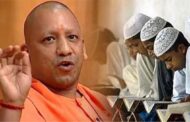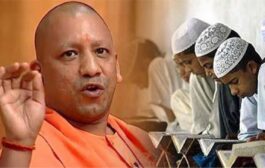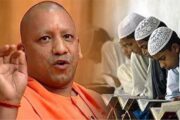After its grand victory in Delhi, the Aam Aadmi Party (AAP) had its best bet in Punjab where the voters were looking for an alternative to the revolving door reign of Congress on the one hand and that of the the Shiromani Akali Dal (SAD) with its alliance partner — the Bharatiya Janta Party — on the other. Punjab voters elected all the four MPs of the AAP at the peak of Modi wave in 2014, even as the party drew a blank in the rest of the country.
It has been a downhill slide for AAP in Punjab since then, with the party scoring a series of self goals. The repeated attempts of the party leadership in Delhi to control the state unit have backfired and have now culminated in an open revolt by many of its MLAs.
The trigger for the latest crisis was the unceremonious removal of the party leader Sukhpal Singh Khaira from the post of Leader of Opposition in Punjab Assembly. Khaira is known for his outspoken character against the ruling party and for taking up cudgels with his own party leaders. His dismissal as the Leader of Opposition — a Cabinet rank post — in view of the fact that AAP was the largest party in the state Assembly, through Twitter by Manish Sisodia (party in-charge for Punjab) was the last straw.
The announcement via Twitter merely said that a Dalit MLA, Harpal Singh Cheema, was being appointed to lead AAP in the House. In any democratic set up, the leader of the legislative party is elected by the MLAs of the party. In this case, they were merely informed about the new leader through email and WhatsApp.
No wonder it led to a storm and Punjab party leaders, who had been constantly facing humiliation because of the arbitrary decisions imposed on the state unit, raised a banner of revolt. Although Khaira and his supporters had claimed that a majority of the 20 party MLAs would attend a rally to demand justice, only seven MLAs made it to the rally. This does not indicate that the others were happy or satisfied with the attitude of the central leadership, but it was a reflection that efforts were being made to mend fences. No action has been taken against the rebel MLAs, even though they have declared “autonomy” for the party’s state unit.
What is intriguing and unfortunate for the party is that its central leadership has been attempting to remote control the activities in Punjab and repeatedly humiliate the state leaders.
From the manner in which the party removed one of its founding leaders in Punjab and the then chief of the state unit of the party, Sucha Singh Chhotepur, on grounds of alleged corruption, to the imposition of leaders from outside Punjab, to selection of candidates for Assembly elections, to the suspension of two of its four MPs, the party has been hurtling from one crisis to another.
It was, at one time, the favourite to win the Assembly elections in the state.
It had started methodical preparation for the Assembly elections much before the other parties could get into the act. It successfully set up booth-wise committees and extensively worked in rural areas to garner support. It also received huge support from Indians living abroad. However, the manner in which the central leaders of the party treated the state leaders, led to erosion of its support base. This subsequently reflected in the comparative poor result, but it still managed to emerge as the second largest party in the Assembly.
The central leadership of the party has evidently learnt no lessons from its past arbitrary attitude and the latest action is likely to cause permanent damage to the party’s prospects in the state.
The party had also banked heavily on social media and continues to do so to make announcements. Its response to the latest crisis is also in the form of a tweet which says, “No matter how much they try, one thing must be made clear: AAP derives strength from its volunteers, likewise every volunteer has only one hero, ie, Arvind Kejriwal. No volunteer will support a person who tries to break the emotional thread between Arvind Kejriwal and his army.”
This official tweet reflects the dictatorial attitude of the party leadership which had been opposing this tendency tooth and nail in Congress as well as in SAD.
A war of sorts has broken up on the social media between the die-hard supporters of Kejriwal and those opposed to his brand of politics. For Punjab, the developments in AAP are hugely disappointing. Their disenchantment with the party has already been reflected in the minuscule support it received in the by-elections to Gurdaspur Lok Sabha seat and for the Shahkot Assembly. The party shall have to reinvent itself in Punjab if it dreams of providing a viable and credible alternative.
source: Firstpost.com

